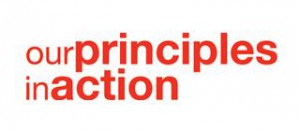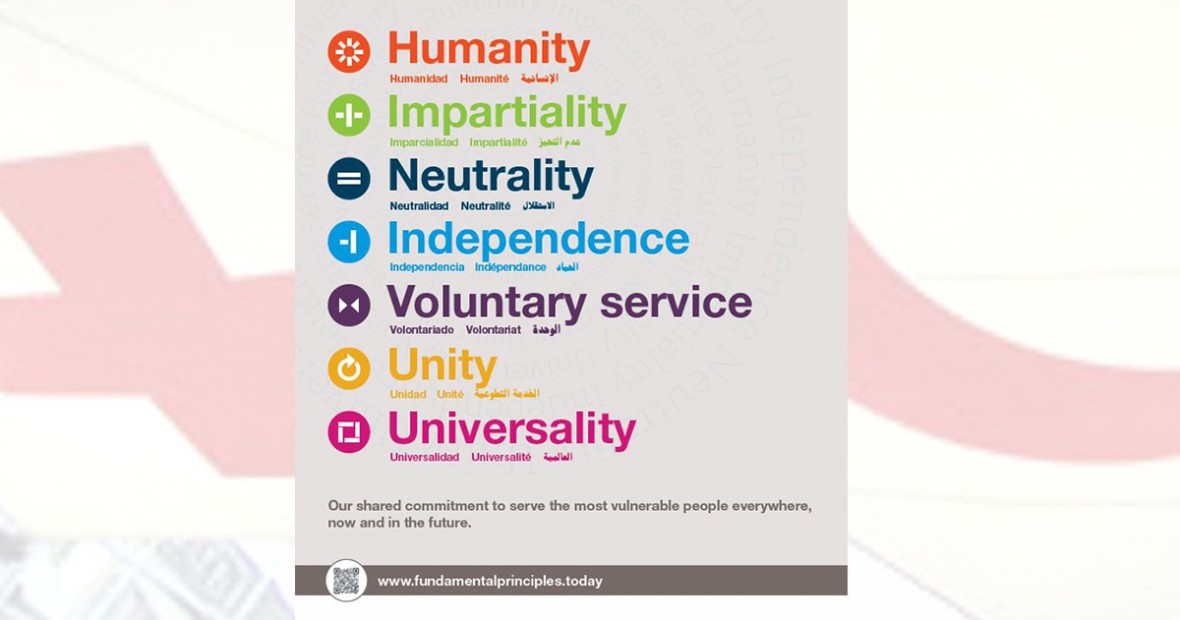It has been 50 years since the Seven Fundamental Principles were proclaimed by the 20th International Conference of the Red Cross. On the occasion of this anniversary, we revisit a presentation made by the Editor-in-Chief of the International Review of the Red Cross, Vincent Bernard, that encapsulates not only the essence of the fundamental principles, but also the challenges faced in upholding these.
The presentation titled “Principled Humanitarian Action” was given to a gathering of humanitarian professionals, policy makers, diplomats, the media and members of the armed and security forces from across the world in Kenya recently.
Vincent reminded his audience of their historical significance, as the principles were adopted as far back as 1965 at the International Conference of the Red Cross held in Vienna. The judgement of the International Court of Justice (ICJ) in USA vs Nicaragua in 1986 further deepened the ideals behind those principles, when it ruled that an essential feature of truly humanitarian aid is that it is given “without discrimination” of any kind.
 In the opinion of Vincent, while neutrality and independence may not necessarily be adopted by a humanitarian organisation, it is important however for humanitarian bodies to render assistance impartially. He surmised that the objective of the principle of humanity is to protect human life, health and dignity, while impartiality as a principle is often misunderstood but is actually a combination of the three main components of non-discrimination, proportionality and impartiality.
In the opinion of Vincent, while neutrality and independence may not necessarily be adopted by a humanitarian organisation, it is important however for humanitarian bodies to render assistance impartially. He surmised that the objective of the principle of humanity is to protect human life, health and dignity, while impartiality as a principle is often misunderstood but is actually a combination of the three main components of non-discrimination, proportionality and impartiality.
He suggested that neutrality is generally perceived as being “weak” due to the ingrained reflex of not taking sides (the ICRC does not side with any of the parties in an armed conflict) but he argued that this ought to be a good posture for all humanitarian organisations. It further presupposes that humanitarian organisations maintain neutrality in ideological and religious maters. The principle of independence informs the disposition of these organisations towards detatching themselves from political interference and financial control. The speaker intoned that an ethical framework for enhancing humanitarian action comprises humanity, impartiality, independence and neutrality.
Elucidating further, Vincent identified challenges to the upholding of these principles to include a return of the “just war” theory (jus ad bellum versus jus in bello); legislation by States (national legislation) against terrorism; re-affirmation of the sovereignty of the State versus local response; instrumentalisation of aid (counter-insurgency etc.); privatisation of aid / multiplication of private partnership to deliver aid; polarisation and cultural differences etc.
He concluded his presentation by reminding the audience that the Fundamental Principles are designed to facilitate acceptance, access and security, and that the layers of these three are: negotiating access, armed escorts, planning humanitarian operations, (composition, training and leadership) for staff and volunteers, and the application of all principles in combination.
Read more:
The Fundamental Principles: Panel debate at the European Parliament
One voice – 7 fundamental principles


